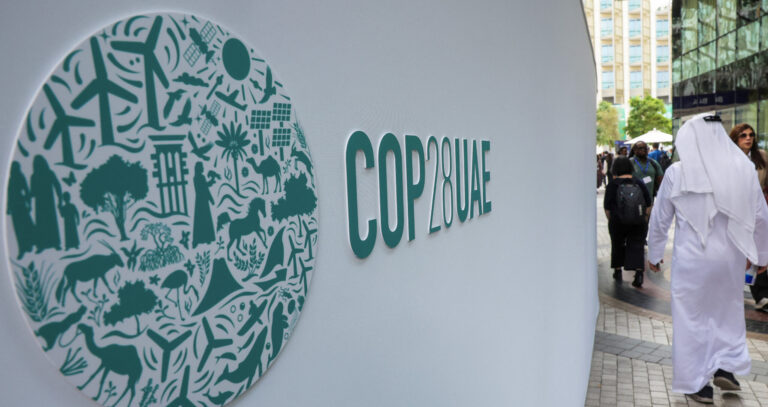UN climate chief calls for $2.4tn inclimate finance

The world needs to mobilise at least $2.4tn to keep global climate change goalswithin reach, the United Nations climate chief said in a speech yesterday.
Simon Stiell, executive secretary of the UN Framework Convention on ClimateChange (UNFCCC), addressed a group of students at the Azerbaijan DiplomaticAcademy in Baku, host of the COP29 climate summit in November, laying out thesteps that need to be taken this year to turn the commitments made at last year’ssummit in Dubai into reality.
This was Stiell’s first major speech since the UN gathering in Dubai, where nearly200 countries agreed to begin a transition away from fossil fuels to avert the worstimpacts of climate change.
“It’s clear that to achieve this transition, we need money, and lots of it – $2.4tn, ifnot more”, excluding China, Stiell said in prepared remarks, citing a reportreleased in December from the High-Level Expert Group on Climate Finance.
“Whether on slashing emissions or building climate resilience, it’s alreadyblazingly obvious that finance is the make-or-break factor in the world’s climatefight – in quantity, quality, and innovation,” he said. “In fact, without far morefinance, 2023’s climate wins will quickly fizzle away into more empty promises.”
Climate finance will be the main focus of the Azerbaijan-hosted talks, wheregovernments will be tasked with setting a new target post-2025 for raising moneyto support developing country efforts to cut emissions and adapt to the worseningimpacts of climate change.
Setting a new financial goal will be challenging given that countries only met lastyear a goal set in 2009 to mobilise $100bn a year in climate finance by 2020.
“It’s already blazingly obvious that finance is the make-or-break factor in theworld’s climate fight,” he said, adding that without more finance, the winsachieved at the COP28 Dubai summit will fizzle out.
Stiell said that the year should be spent ensuring that the global financial systemand multilateral banks can meet the task of ramping up climate finance, and urgedbanks to triple the amount of climate grants and concessional finance by 2030and triple the rate of private capital they mobilise.
More broadly, he cautioned against taking “victory laps” after the UAE agreement,saying that the political agreement reached in Dubai enables countries to hidebehind “loopholes”.
“The action we take in the next two years will shape how much climate-drivendestruction we can avoid over the next two decades, and far beyond,” he said.
The world is currently far off track in delivering on its cornerstone climate deal,agreed in Paris in 2015.
Under the Paris Agreement, world leaders pledged to keep the rise in Earth’saverage temperature to “well below” 2.0° Celsius above the pre-industrial leveland preferably the much safer threshold of 1.5C.
The 2020s are critical for keeping that 1.5C target in view, with UN climate expertsestimating that planet-heating greenhouse gas emissions need to be slashed bysome 43% by 2030.
There is progress, with a surge in clean energy technologies like solar, wind andbatteries, as well as electric vehicles.
However, emissions continue to rise.
A key challenge that is likely to take centre stage at this year’s climate talks inBaku, as well as meetings of the World Bank and International Monetary Fund(IMF), is how to support emerging economies manage and pay for their transitionto clean energy.
Many of these nations are currently mired in debt and facing a raft of challenges,from inflation to growing climate impacts.
Meanwhile global warming continues, with 2023 confirmed as the hottest everrecorded and experts warning 2024 could be even hotter.
The Earth is now about 1.2C warmer than it was in the 1800s.
This is already having an accelerating impact on people and ecosystems acrossthe planet, from heatwaves and droughts, to devastating floods and storms.
A damning appraisal of countries’ decarbonisation efforts so far, released lastyear, showed the world heading for catastrophic planetary heating.
Stiell conceded it would take an “Olympian effort” to get the world on track.
One key task for countries will be to outline a new round of national climatetargets for 2035 ahead of a pivotal COP30 meeting, due to be held in Brazil in2025.
These pledges should be strengthened to align with the 1.5C goal, cover thewhole economy and all greenhouse gases, Stiell said.
“The action we take in the next two years will shape how much climate-drivendestruction we can avoid over the next two decades, and far beyond,” he added.